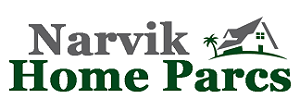Wildlife Removal: Things To Know Before You Attempt It

Many species of wildlife—raccoons, squirrels, skunks, opossums, to name but a few—that stray into the human habitat can often prove to be more than a considerable source of nuisance. Not only they make it easier for other pests to enter your house (by dint of making entry points for themselves), their stay in the house can also lead to fire hazards and other serious troubles. Often, they can also pose a direct threat to the health of the people and pets of the family.
That is why you may often find yourself in a position where you need to remove these creatures from your house and better even, from your property. In some cases, they may even need to be exterminated. However, carrying out such measures on your own may potentially land you into legal trouble. All states have a number of laws and regulations regarding wildlife protection, which means you cannot remove wildlife off your property jus any which way you choose.
In this article, we’ll talk about some of the most relevant (to a homeowner) of these regulations concerning wildlife removal.
First of all, you must know that many of the most common ‘nuisance animals’ such as squirrels, raccoons and skunks fall in the Protected Wildlife category. As such, most states require that you have a SPECIAL LICENSE or PERMIT before you can remove these animals out of the bounds of your property.
Moreover, in certain states, even with a permit, there are still restrictions as to what you can or cannot do while removing or trapping wildlife. In Illinois, for example, you need to prove beyond doubt that your health or safety is at threat because of the presence of one or more animals on your house or property, and only then can you attempt removal.
Also, if you have a permit to euthanize an animal, a skunk for example, only a licensed professional is allowed to euthanize it. On the other hand, the raccoons, if trapped within a house, must be released within the same property.
Some states also allow certain exceptions to these mostly average norms. Pennsylvania Wildlife Department, for example, is known to remove protections from members of wildlife that are clearly sick and are suffering from a disease. Since these diseased animals pose veritable threat to humans or livestock within the property, you may not need a special permit to get rid of them. However, even in such cases, the removal can be legally carried out only by the property owner himself or by a licensed wildlife removal professional who is appointed the task of removal by the owner. There are also regulations to be followed regarding the disposal and removal of these sick animals.
At this point, you may be wondering how am I to get knowledge of all these rather intricate and complex regulations regarding wildlife removal—at the same time when a raccoon is going haywire up in my attic! Well, you can get all the information on this subject in the websites of your state’s Fish and Game Commission and Parks and Wildlife Department.
Alternatively, you can get in touch with a licensed professional, such as this wildlife removal Atlanta company, who will be familiar with all these regulations and will also be the right person to help you carry out the removal (and if required, elimination) of an animal in a proper, effective and humane manner.

